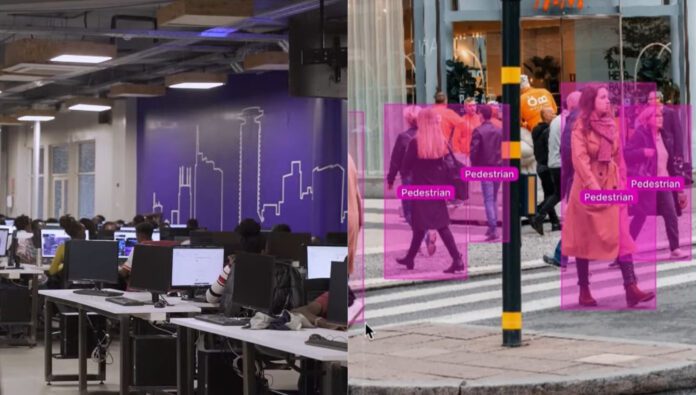Kenya has one of the youngest populations globally. However, many young Kenyans despite holding university degrees struggle to find jobs. As a result, they are forced to find alternative ways to make a living, as their youth leaves no room for idleness.
As the unemployment rate gradually increases above 67% among the young, this creates a huge opportunity for outsourcing companies to link global firms with a skilled pool of unemployed individuals. Kenya stands out as a prime location for such services.
Artificial Intelligence is the global buzzword of the current era. While some reports predict AI could replace human labor in the future, this is far from the current reality. Behind the scenes, a global ‘army’ works tirelessly to train AI.
The term for these workers is ‘humans in the loop’. They handle tasks like sorting, labeling and analyzing vast amounts of data to train and refine AI systems for global tech companies. The job demands speed, precision, and cost-efficiency.
In an interview with 60 Minutes, Naphtali Wambala, a father of two and Mathematics graduate shared what it’s like to work behind the scenes in the AI industry. Every day, he joins thousands of digital workers who spend 8 hours in front of screens analyzing photos and videos.
Their task is to draw, label, and categorize data in a process that teaches AI algorithms how to recognize and interpret visual content.
“You’d label for example furniture in a house and say this is a TV or microwave…you’re teaching the AI to identify these items automatically,” he said.
AI keeps getting smarter, and that means humans in the loop will always be employed as companies roll out new AI products. However, the job has a downside. A Kenyan human rights activist termed it as ‘modern-day slavery’ and calls the jobs ‘AI sweat shops’ with computers instead of sewing machines.
She noted that big tech companies come to Africa with promises of a better future but pay workers very little for their efforts, unlike what they pay in their regions. She added that there is minimal job security with the AI jobs.
“The contracts we’ve seen are short-term. I’ve seen people that have monthly contracts, some weekly and others for days…I think we’re so concerned with creating opportunities, we’re not concerned with whether they’re good opportunities,” she said.
President William Ruto has been luring these global tech companies into the country by offering financial incentives on top of laxed labor laws. Despite Kenya being marketed as the silicon savannah of Africa, these workers aren’t hired by tech giants but rather outsourcing firms.
Why you should be polite to ChatGPT, Gemini and other AIs
Naphtali Wambala shared that from the AI jobs, he earns Sh. 250 ($2) gross without deducting taxes. He is hired by a Mombasa-road based outsourcing company which employs over 3,000 people on behalf of tech giants.
Confidential records obtained by 60 minutes show that creators of a popular generative AI agreed to pay the firm Sh. 1,600 ($12.50) an hour for the position of a Data Labeler who will complete 202,000 tasks monthly.
The fee will also cover QA managers, QA analysts, Project Managers, Team Leads, Customer Success Managers, Agents and Counsellors. However, this firm only pays Sh. 250 ($2) an hour per worker and defends itself by stating that it’s a fair wage for the region.
“I was living from paycheck to paycheck. I have saved nothing because that amount is not enough. It is an insult,” said Naphtali’s colleague, adding that they were all walking on eggshells for complaining about employment terms with unrealistic deadlines and expectations.
They also shared that when they completed deadlines ahead of schedule, the company would reward them with KFC & Coca-Cola instead of paying their full wages for the entire period.
Naphtali revealed that his job involved sifting through and removing harmful online content like hate speech and violence to help train AI, working 8 hours a day. He and his colleagues shared that the job had a negative impact on their well-being. However, the company responded by saying they offered mental health counseling to support their workers.
“Our labor laws are more than 20 years old. It doesn’t touch on digital labor. I do think that our labor laws need to start recognizing it…what happens is when we try to push back in terms of workers protection, the companies shut down and move to a neighboring country,” said the activist.









